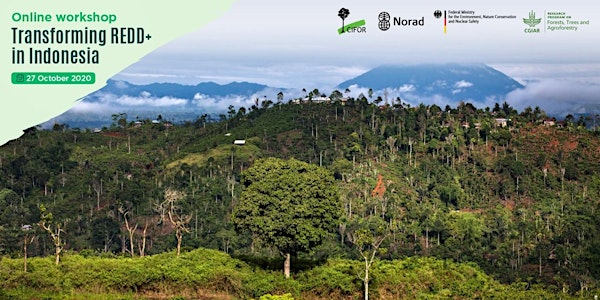CIFOR has been implementing the Global Comparative Study on REDD+ (GCS-REDD+) project since 2009. Through comparative studies of REDD+ implementation around the world, the GCS-REDD+ project takes stock of international, national and subnational REDD+ experiences to identify challenges and opportunities in designing and implementing REDD+ policies and projects. The first phase of CIFOR’s REDD+ research focused on overall design issues and aimed to build a strong research-based knowledge. The second phase focused on generating new knowledge to inform and facilitate process of transformational change within the REDD+ policy arena, and understanding performance of REDD+ policy processes, measures and practices. In the third phase, CIFOR aims to support REDD+ decision makers by assessing REDD+ impact and providing critical analysis of REDD+ in terms of effectiveness, efficiency and equity (3Es). Under this third phase of GCS-REDD+, CIFOR observed the momentum where Indonesia successfully entered the third phase of REDD+ to receive payments based on verified emission reductions. The country is to receive USD56 million from the Norwegian Government in June 2020 as part of the Letter of Intent (LOI) Indonesia-Norway for 11.2 million tCO2e from reduced deforestation rates in Indonesia in 2017 and USD103.8 million from Green Climate Fund (GCF) in August 2020 based on 20.3 million tCO2e emissions avoided for results period 2014-2016.
The results-based payment (RBP) is a key component of REDD+ policies and projects (Sills et al. 2014; Angelsen 2017). RBP is defined as ‘a transfer for money conditional upon achieving a predetermined performance target’ (Angelsen et al. 2018). The idea is to pay countries and projects for reduced emissions. REDD+ brought RBP as the main innovation and distinguishes the initiative from former large-scale forest conservation initiatives (Ibid 2017; Ibid et al. 2018). Although originally envisioned as funding raised through carbon markets, it has evolved as results-based aid (Ibid 2017). The GCF, the World Bank’s Forest Carbon Partnership Facility (FCPF), Norway’s International Climate and Forest Initiative (NICFI) and Germany’s REDD Early Movers programme are among the notable funding available for REDD+. Some countries such as Brazil (USD 96.5 million) Guyana (USD 150 million) and Indonesia has move to phase 3 and receiving results-based payments while others are stuck in phase 2 (REDD+ implementation). Despite the importance, RBP is challenging to implement as it is not quick and easy as intended.
CIFOR’s transforming REDD+ book has identified three key challenges for RBP. The challenges are what to pay for, how to set reference levels and who should be paid. The GCS-REDD+ final workshop will have the two main objectives: first is to discuss the global outlook on results based payment. Second, is to explore opportunities and challenges in implementing RBP.
